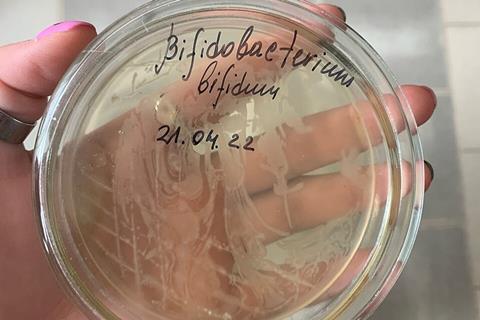Bifidobacterium is widely known for promoting digestive health and is often included in fermented foods and dietary supplements. However, emerging evidence suggests it may also play a broader role in immune regulation and cancer defense. A new review explains how certain strains of bifidobacterium may enhance the effectiveness of chemotherapy, radiation, and immunotherapy in cancers such as breast, lung, colorectal, and gastric cancers.

The review was published in Oncotarget (Volume 16) on November 14, 2025, titled “Mechanism of anticancer action of bifidobacterium: Insights from gut microbiota.”
This review, led by first author Hoang Do and correspondent author Ashakumary Lakshmikuttyamma from Thomas Jefferson University, explores how bifidobacterium, a common probiotic found in the gut, may contribute to cancer prevention and therapy. By analyzing existing studies, the authors highlight the growing importance of gut health in cancer treatment and shed light on how bifidobacterium could complement standard cancer therapies.
Cancer outcomes
According to the review, bifidobacterium influences cancer outcomes through several biological mechanisms. It helps regulate immune function by reducing inflammation and supporting the activity of immune cells that target tumors. For instance, strains like B. longum and B. breve have been shown to lower levels of harmful inflammatory markers and boost anti-inflammatory responses. These changes can make cancer treatments more effective while also reducing side effects.
READ MORE: ‘Good’ gut bacteria boost placenta for healthier pregnancy
READ MORE: Review explores roles, mechanisms and applications of intra-tumoral microbiota in cancers
The review also discusses how bifidobacterium helps detoxify the body by breaking down cancer-causing compounds and limiting their ability to damage cells. In preclinical studies, the probiotic reduced the activity of enzymes that produce carcinogens and helped in converting food-based substances into cancer-fighting agents. Some strains were even found to suppress genes that promote tumor growth and increase molecules that trigger cancer cell death.
Dietary support
The authors emphasize that diet plays a critical role in supporting the growth of bifidobacterium. Foods rich in dietary fiber, especially those containing inulin and oligosaccharides like garlic, onions, or leeks, can help increase its levels in the gut. This suggests that simple dietary changes could not only improve gut health but also support cancer prevention and treatment strategies.
Although the review presents compelling evidence, the authors stress the need for more clinical trials to determine how different strains of bifidobacterium affect specific types of cancer. Personalized approaches may be necessary to match the right probiotic strains with individual treatment plans.
As research continues to uncover the link between gut microbes and cancer, bifidobacterium stands out as a promising natural ally that could enhance the body’s defenses and improve cancer treatment outcomes.







No comments yet